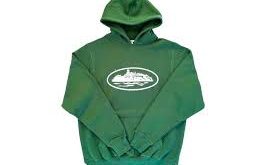Raccoons may be attractive creatures at a distance, but once they turn your home into their own it quickly becomes an issue. A lot of homeowners try to handle raccoon removal at their own expense, usually making mistakes that could cause more harm or expose themselves to risk. The article below will discuss some of the common mistakes made in raccoon removal and bring guidelines in avoiding these, and warrant a secure and successful solution to your raccoon issues.

Underestimating Raccoon Intelligence
One of the biggest errors that people make when it comes to the raccoons is to underestimate their abilities. Raccoons are highly adaptive and intelligent animals skilled at solving complicated issues to receive access to food as well as shelter. They’re extremely observant and are able to draw lessons from their past experiences. This makes them formidable enemies in the struggle to protect your home.
In order to avoid making this error:
- Consider that deterrents alone could not suffice sufficient
- Learn that raccoons are able to conquer basic challenges
- Prepare to employ several methods for successful Raccoon control
Failing to Identify Entry Points
A common mistake is not being able to identify the potential entrance points that raccoons could use to collect access to your house or your property. The raccoon is a skilled climber and has the ability to get through tiny gaps, which is why it’s essential to conduct an extensive examination of the property.
Avoid this error:
- Examine the roof and eaves and chimney for ways to access them.
- Examine the foundations of your house for any gaps or cracks
- Be aware of signs that your home is being scavenged since raccoons could tunnel under structures or fences.
Using Ineffective or Harmful Repellents
A lot of homeowners resort to buying products from the store or at home to endeavor to discourage raccoons. Although some of these items might prepare temporary relief, they’re usually not effective in the long term and could be dangerous to raccoons as well as other wildlife animals, pets or even the surrounding environment.
In order to avoid making this mistake:
- Find out the efficacy and safety of repellents in advance of them.
- Beware of mothballs, ammonia and other substances that could be toxic.
- Think about natural deterrents such as sprinklers or lights that are activated by motion rather than
Improper Trapping Techniques
In the event of a continual issue with raccoons, many opt to trap. But, poor trapping methods may result in injury, including to the raccoon, and the person trying to catch the animal. In addition, some regions are governed by specific laws and regulations on wildlife trapping as well as relocation.
Avoid this error:
- Learn about local regulations regarding trapping of wildlife
- Utilize humane traps specifically designed for the raccoons
- Think about employing an skillful wildlife removal service to ensure legally and safely trapping
Neglecting to Address Attractants
The most neglected aspect of eliminating raccoons is the failure to take care of the reasons that draw animals to your home at all. Raccoons can be opportunistic eaters, and are known to return to places that they’ve had water, food or shelter in the past.
In order to avoid making this mistake:
- Lock garbage bins securely with tight-fitting lids that lock
- Take away outdoor pet food and water bowls after dark
- Close the compost bins and be sure to not add dairy or meat products.
- Remove tree branches that grant an easy way to access the roof

Sealing Entry Points Prematurely
To solve the issue, some homeowners do the wrong thing by blocking entry points, without making sure all raccoons are gone from the property. The raccoons could be trapped inside the home and cause damages to your property and dangers to your health.
Avoid this error:
- Make use of one-way exclusion devices let raccoons out without re-entering
- Take a few days to warrant that all raccoons are gone prior to closing entry points
- Find out if there are sounds from animals trapped prior to completing repairs.
Ignoring Potential Health Risks
Raccoons may carry a range of illnesses and parasites such as roundworm, rabies and leptospirosis. Failure to be vigilant regarding raccoons and their droppings could place yourself and your family members at danger.
In order to avoid making this mistake:
- Use protective equipment, such as gloves and masks in the process of cleaning up droppings from raccoons
- Do not come into any contact with raccoons, or their bodily fluids
- Contact a medical competent in the event that you think you may have been exposed to a disease transmitted by raccoons
Conclusion
A successful raccoon elimination is a multi-faceted strategy that not just addresses the immediate issue, but also hinders the occurrence of future raccoon outbreaks. If you avoid these errors, you will assure an easier and safer effective outcome when you attempt to rid your property of the shrewd creatures.
Keep in mind that the raccoon and bat removal could be an extremely complex and risky job. Although some precautions can be carried out at your own pace however, it’s perfect to speak with or engage the services of a well-qualified wildlife removal firm in case of persistent or major-scale issues with raccoons. The experts they employ have the experience and tools to manage raccoon removal securely and effectively and minimize the risk to the animals and humans.
If you are aware of the most common mistakes that arise from removing raccoons and taking a deliberate method of action, you will be able to safeguard your home and assure the treatment with compassion of these creatures. If you are patient, persistent and use the appropriate methods, you will be able to successfully deal with your raccoon issue and avoid future attacks and allow you to relax in your outdoor space and home with no unwanted furry visitors.
 Daily Blogger News Stay updated with the latest trends and insights. Your reliable source for daily updates and information.
Daily Blogger News Stay updated with the latest trends and insights. Your reliable source for daily updates and information.








